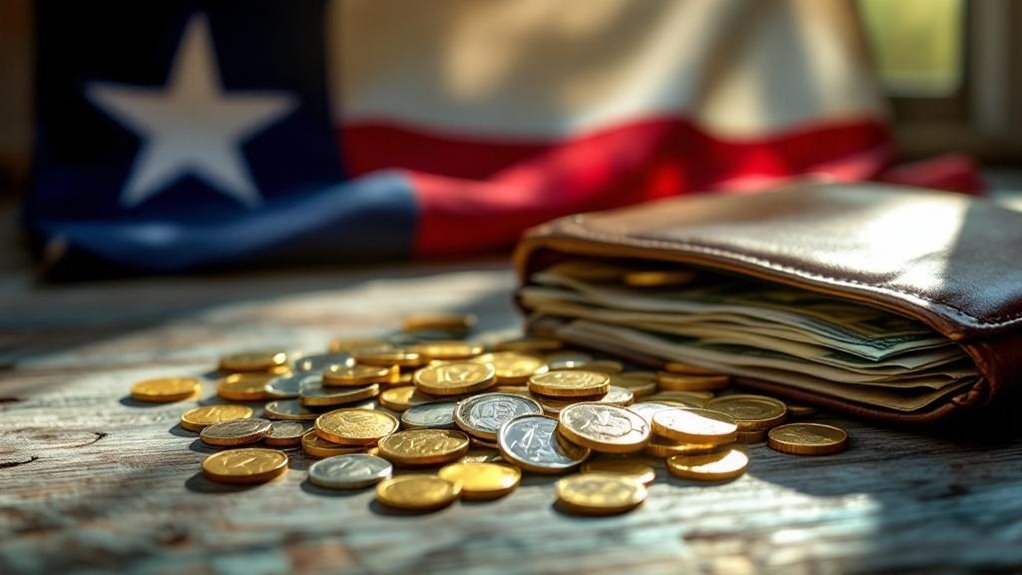MemeCoinCook.com serves up spicy crypto memes and info for entertainment only—this ain’t financial, investment, legal, or professional advice! Whipped up with AI flair, our content might have some half-baked bits, so DYOR before you dive into the crypto pot. NFA, folks—we’re just tossing out ideas, not guarantees. We make no claims about the accuracy, legality, or tastiness of our posts. Sip our content at your own risk! Check our Terms of Use for the full recipe.

Texas Defies Currency Norms: Gold and Silver to Gain Legal Tender Status in 2027
When Texas Governor Greg Abbott signed House Bill 1056 into law, the Lone Star State joined a small but growing club of states recognizing gold and silver as legal tender. The law, set to take effect on May 1, 2027, represents a significant shift in how Texans might conduct everyday financial transactions.
The legislation allows residents to use gold and silver alongside regular dollars for purchases, though nobody is required to accept precious metals as payment. Think of it as adding more payment options to your wallet. The comptroller of Texas will determine the metals’ value at the time of each transaction, ensuring fair market pricing rather than fixed rates.
Texas adds precious metals to payment options while keeping acceptance voluntary for businesses.
This move isn’t exactly revolutionary rebellion. The law references a constitutional clause that actually forbids states from making anything except gold and silver legal tender for debts. Texas legislators fundamentally decided to lean into this provision while keeping Federal Reserve notes fully operational. US dollars remain king, but now they’ll share the throne.
The timing is particularly interesting. On the same day Abbott signed the gold and silver bill, he also approved legislation creating a Texas strategic Bitcoin reserve. It’s like Texas decided to diversify its financial portfolio and embrace alternative currencies all at once. The state appears to be hedging its bets on multiple monetary fronts.
Public reaction has been mixed. Some Texans worry about the practical challenges of buying groceries with gold coins, while others see it as a return to constitutional principles. The optional nature of acceptance likely prevents major disruptions to daily commerce. Supporters of the legislation argue it provides enhanced economic freedom by expanding currency choices beyond traditional fiat money. The law aims to enhance Texas’s financial sovereignty by reducing dependence on federal monetary policy.
Texas joins states like Florida in this precious metals movement, signaling a broader trend among certain states to explore monetary alternatives. Whether this represents genuine financial innovation or political theater remains debatable.
What’s certain is that starting in 2027, Texans who want to pay with gold or silver will have that option legally recognized. The real test will come when implementation begins. Will businesses actually accept precious metals? Time will tell if this law transforms commerce or simply collects dust.



